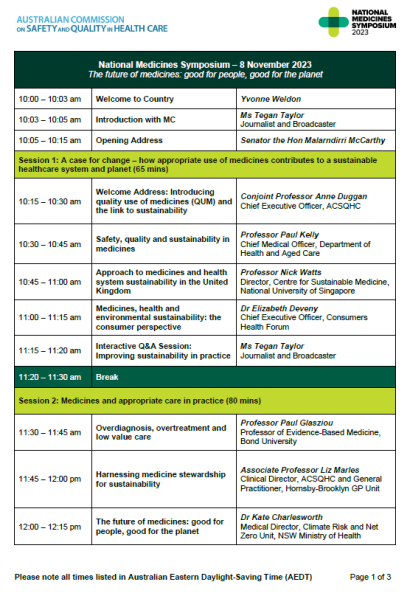This resource lists upcoming live events for the National Medicine Symposium on 8 November 2023. All times listed are in Australian Eastern Daylight Time (AEDT).
Have your say on what safe and high-quality Safe Spaces look like, and help inform the design and development of national minimum standards.
Registrations are now open for the National Medicines Symposium 2023 on the future of medicines and sustainability.
This fact sheet provides an overview of the National Pathology Accreditation Scheme.
Discover upcoming events that the Commission organises and supports. Learn about the Commission’s work, sign up for events and access awareness day resources.
We are delighted to present the second edition of Person-centred Care Insights.
On the Radar Issue 616 is now available.
A list of members for the Hip Fracture Clinical Care Standard Topic Working Group.
The quality statements for the Hip Fracture Clinical Care Standard are based on best available evidence and guideline recommendations at the time of development. This summary describes the relevance of each evidence source to the quality statements.




